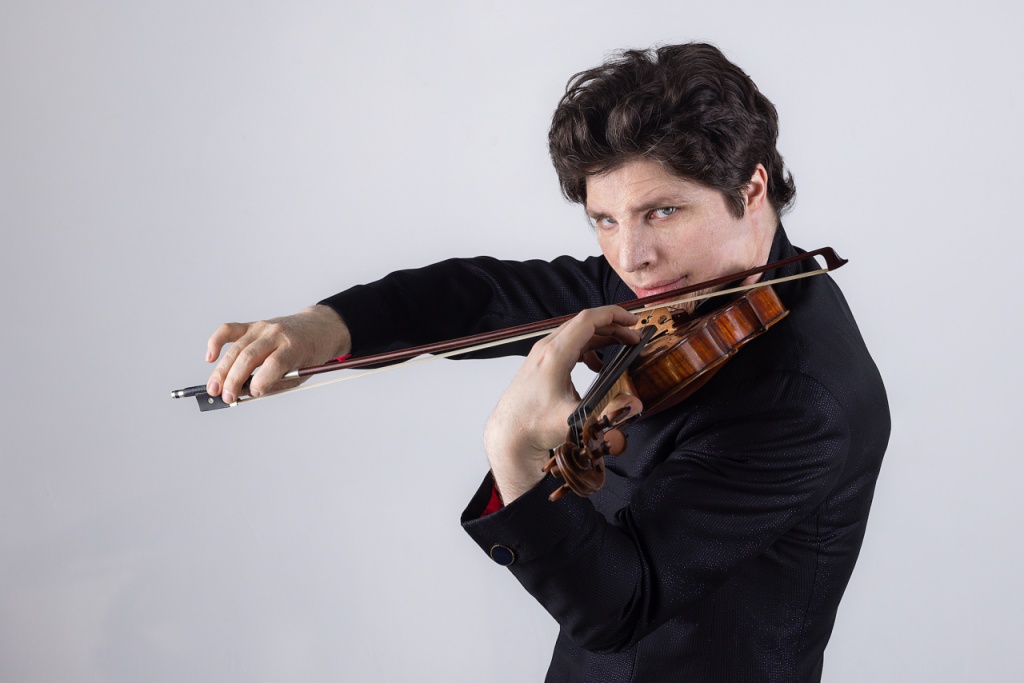Cleveland Orchestra
Pietari Inkinen, conductor
Augstin Hadelich, violin
Mandel Concert Hall
Severance Music Center
Cleveland, OH
November 24, 2023
Dvořák: Othello Overture, Op. 93
Tchaikovsky: Violin Concerto in D major, Op. 35
Encore:
Forrester: Wild Fiddler’s Rag
Dvořák: Symphony No. 8 in G major, Op. 88
The Thanksgiving weekend saw the Finnish conductor Pietari Inkinen make his Cleveland Orchestra debut in a program of works all composed within just over a decade and from the heart of Eastern Europe. Dvořák’s Othello Overture opened, conceived as the final entry of a trilogy of related overtures. Written just four years after Verdi’s landmark opera on the same subject, Dvořák likely drew inspiration from the Italian he greatly admired, though his overture tended to suggest the essence of the Shakespearean source material rather than spell out a specific narrative.

Slow and somber introductory material built to music of great drama. It seemed that Inkinen could have benefited from some additional rehearsal time with a handful of uncoordinated entrances, but an effective performance was managed nonetheless. The slow material returned at the end, with stentorian brass strikingly invoking the slumber motif from Wagner’s Die Walküre as something of a final prayer before the unequivocally tragic end. So much of the time Dvořák is programmed we hear one of the last few symphonies (or the cello concerto), but this overture was a welcome discovery, and should certainly encourage listens to look at Dvořák’s orchestral corpus beyond the warhorses.
The balance of the program, however, was dedicated to warhorses – and in no way a detriment! Tchaikovsky’s evergreen Violin Concerto called upon soloist Augustin Hadelich. A gentle dip set things in motion in this most graceful of openings, with Hadelich’s solo line articulate, keenly phrased, and above all, richly lyrical. Nimble and nuanced, he displayed some especially impressive fingerwork in the cadenza. A choir of winds opened the central Canzonetta, and the songful, mournful violin purveyed a delicate cantilena. The finale is such joyous affair for someone who lived such a tragic life as its composer, and Hadelich’s sprightly virtuosity closed the work in the highest spirits. He returned for a well-deserved encore, his own arrangement of Howdy Forrester’s Wild Fiddler’s Rag – a piece of great fun with its bluesy inflections.
Franz Welser-Möst set the bar high for Dvořák’s Eighth Symphony two seasons ago; while Inkinen didn’t quite reach that height, it was here he made the strongest impression – and opted to conduct this score from memory. The deeply lyrical opening gesture gave way in due course to material of an inimitable Bohemian charm, aided by fine solo passages from the principal winds. Still, greater dynamic contrast would have helped, with conductor leaning a bit too heavily in the orchestra’s upper end of the range.
A bucolic slow movement built to a resonant climax, and the lovely Allegretto grazioso was flowing and deftly shaped, though a tad rushed for my taste. The call to arms in the trumpet initiated the energetic and often boisterous finale, nearly overflowing with gracious material that never strayed far from the composer’s Czech origins. On a final note, how gratifying it was to see nearly every seat of Severance Hall filled, and with such a warm, enthusiastic audience.

